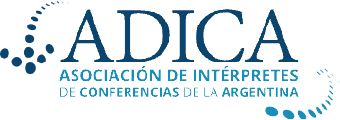Both interpreters and translators make communication between
people who speak different languages possible, but they do so in
different ways. Translators work with the written word,
converting texts from one language to another. Interpreters, on
the other hand, work with the spoken word, conveying the
meaning of the speaker’s message from one language to
another, verbally and in real time. Due to the high cognitive load
entailed by their work, interpreters usually work in teams of at
least two people at in-person or virtual events and conferences.
There are three types of interpreting, which are suitable for
different types of events:
Simultaneous: the message is rendered in the target language at
the same time as the speaker delivers the message. Sound
equipment must be hired for this service.
Consecutive: the interpreter first of all listens to what the
speaker says in the source language, and then renders the
message in the target language.
Whispering or chuchotage: simultaneous interpreting in which
the message is translated into the ear of the participant or a very
small number of participants.
Interpreters’ work begins long before the conference itself with
research of the subject matter in question and study of specific
terminology. Therefore, once a job is confirmed, interpreters
request presentations, videos, and any other relevant material to
be used at the event with the purpose of familiarizing themselves
with the technical or professional jargon and other specific
information pertaining to the meeting. It is estimated that each
day´s work requires a minimum of half a day of prior study,
although more often several full days of study are necessary. On
the day of the event itself, interpreters arrive early, allowing
enough time to set up, carry out sound checks, and to organize
their support material, including the agenda, glossaries,
dictionaries, and available presentations. As a rule of thumb,
interpreters work in teams of at least two, alternating shifts of
15, 20, or 30 minutes, to ensure that high levels of concentration
are sustained throughout the entire duration of each event. One
interpreter speaks at a time while the other pays close attention
to the meeting in progress in order to actively support their
colleague, helping with technical issues and terminology as
needed.
Our Interpreters Directory has a search function that allows you
to conduct a search according to your requirements. The main
selection criterion will be the language combination for which
you need to hire an interpreter. Each interpreter´s profile also
includes a short description of their areas of expertise and career
highlights in order to help clients choose the professional best
suited to their needs.
Professional fees for interpreting services depend on the
duration of the event. Please go to our Home page and click on
the “Guideline to fees” button, where you will find a guideline to
professional fees for events of different durations.
Pre-candidates: Interpreters who have not yet worked the
minimum required 30 days but are sponsored by an ADICA
member who has been active in the association for at least three
years may apply to join as pre-candidates. The procedure is as
follows: 1. Sponsor sends an email to secretaria@adica.org.ar
stating their desire to sponsor the interpreter as a pre-candidate.
2. Pre-candidate emails secretaria@adica.org.ar to submit their
affidavit, CV (using the template provided), and standard
application form, all of which can be downloaded from the
“Become a member” page of this site by clicking on the “Apply
for membership” button. 3. ADICA’s Ethics and Admissions
Commission (CEA) checks that pre-candidate meets
requirements. 4. If the CEA issues a favourable opinion and no
objections or reservations are raised within three months, the
applicant´s pre-candidacy is officially confirmed and announced.
5. Pre-candidates have three years to meet the necessary
requirements to become candidates (see below). Pre-candidates
may attend the induction talk at any time during their pre-
candidacy (or candidacy) period.
Candidates: To apply to join as a candidate, interpreters must
have worked for at least 30 days and be sponsored by two ADICA
members who have been active for three years and who have
the same or superior linguistic combination to the candidate´s.
The procedure is as follows: 1. One or both sponsors send
an email to secretaria@adica.org.ar stating their desire to
sponsor the candidate. 2. Candidate e-mails
secretaria@adica.org.ar to submit their affidavit, CV (using the
template provided) and standard application form, all of which
can be downloaded from the “Become a member” page of this
site by clicking on the “Apply for membership” button. 3. ADICA’s
Ethics and Admissions Commission (CEA) checks that candidate
meets requirements. 4. If the CEA issues a favourable opinion, no
objections or reservations are raised within six months and the
candidate attends an induction talk, the candidate becomes an
active member.
